Alleged big tech censorship of faith-based groups and critics of the Chinese Communist Party could be hindering the ability of e-commerce enterprises to function after two Australian women found their Facebook and Instagram business pages temporarily blocked.
Ariel Tian, a young jewellery designer with a growing celebrity clientele, who is also a religious refugee from China, has been left pondering whether her Instagram account was temporarily blocked because she revealed the source of her inspiration for her designs came from her faith in a practice targeted for “eradication” by the Chinese Communist Party (CCP).
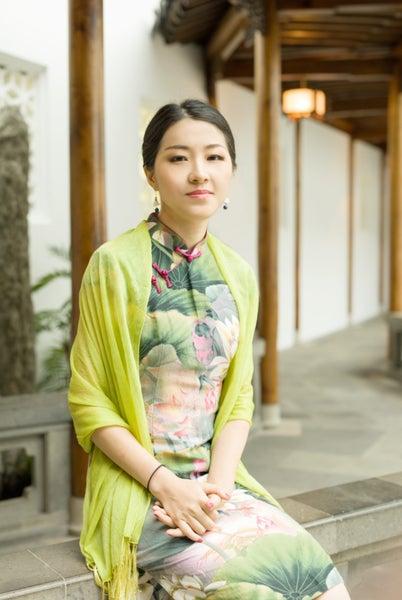
But amid her growing success, Tian believes she may have accidentally found herself at odds with Meta, Facebook and Instagram’s parent company.
The trouble started after she published a post to her Story highlight on Jan. 4, ascribing her design inspiration to Falun Dafa, a spiritual practice from the Buddhist tradition whose adherents follow moral teachings to live by the core tenets of truthfulness, compassion, and forbearance, along with practising meditative exercises.

But its immense popularity prompted the CCP to launch a brutal persecution against Falun Dafa in 1999, with the stated goal to “eradicate” the practice—and since then, the regime has subjected adherents to the full force of Beijing’s propaganda influence inside China and throughout the world.
Tian, who currently lives in Australia with her husband, said her business account started to behave oddly around Jan. 7. However, according to the records of a company she used to promote her Instagram business, the company lost connection to the account on Jan. 6.
Thinking the problem was a simple login error, Tian said she contacted her account manager on Jan. 8 to ask if their service could have caused the suspension but was assured this was not possible. Tian could also see that nothing in the Instagram backend showed anything was affecting her account status.
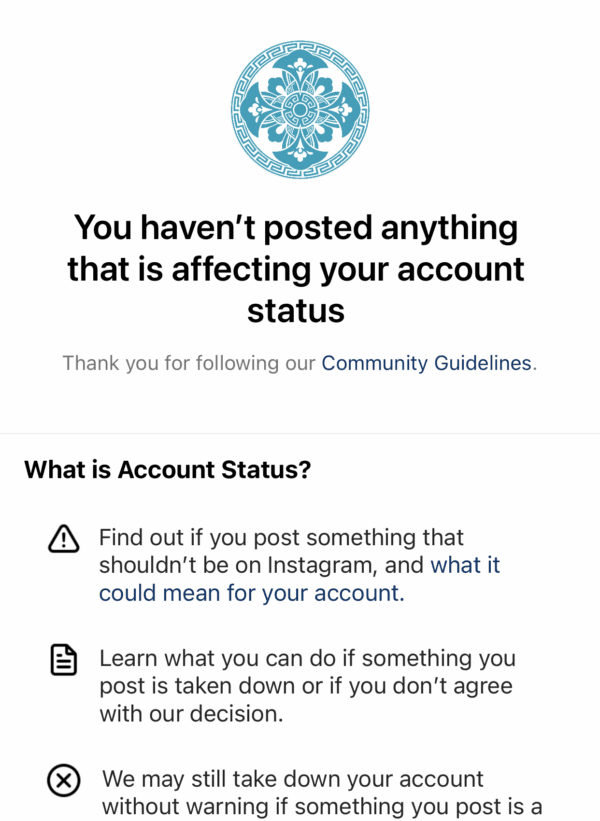
But this soon changed with her account status altering just hours later, saying that the “account has been disabled for violating our terms.”
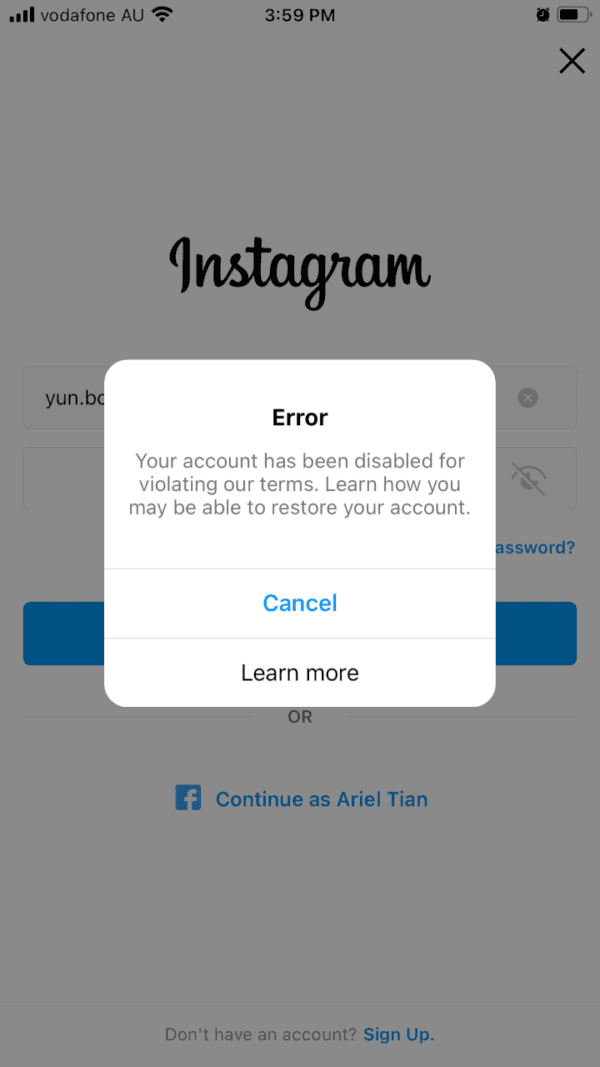
“Your account has been disabled for not following our terms … Some of the things we don’t allow include artificially collecting likes, followers or shares, posting repetitive content, or repeatedly contacting people for commercial purposes without their consent. If you think this was a mistake, please let us know.”
Tian clicked “let us know” and submitted the information according to the instructions. She was asked to provide a business receipt and proof of domain ownership, which she did.
Instagram then sent an email asking for her to take a photo of her face and arm holding related information handwritten on a piece of paper. She did and then waited.
She never heard back from Instagram again, but after reporting the issue to Facebook, parent company Meta sent her an email stating that they had completed a review of her shop and that it complied with their commerce policies.
“After our review, we determined that your shop complies with our Commerce Policies. This shop is now live,” Meta said.
However, despite this, Tian found it to be still restricted after checking her business page.
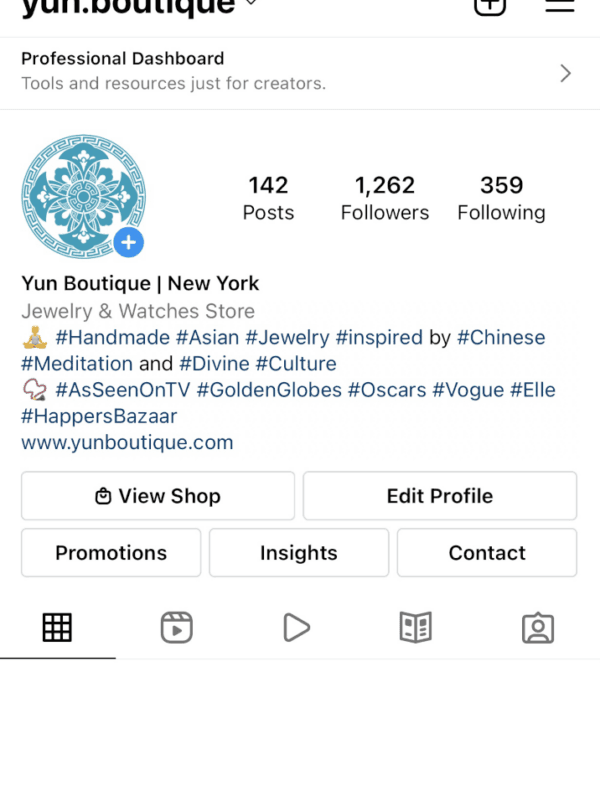
Tian now suspects her Facebook and Instagram accounts, which had grown in popularity amongst a celebrity clientele, drew the attention of the CCP’s army of online agents, who she believes maliciously reported her business page after she publicly shared that she drew inspiration for her jewellery designs from the practice of Falun Dafa.
“Some Chinese people could be hostile to this practice because of massive media propaganda launched by [the] Chinese Communist Party,” Tian said.
But she noted that she understood their behaviour as she has first-hand experience of the brainwashing the CCP uses on the Chinese people.
Not The Only One Struggling With Big Tech
But Tian is not the only Falun Dafa adherent whose business account has experienced problems.Fellow Chinese-Australian Jennifer Zeng, an independent China watcher, human rights activist, and author, has had a similar experience on Facebook.
Zeng, who is known for her autobiographical book titled “Witnessing History: One Woman’s Fight for Freedom and Falun Gong,” has been outspoken in discussing the difficulties she faced as a Falun Dafa practitioner in Mainland China, including her time in a detention centre where she was tortured for her beliefs.
The book was described by author of more than 20 books June Sawyers as “an often harrowing, powerful reminder of what can happen when government power runs unchecked.”
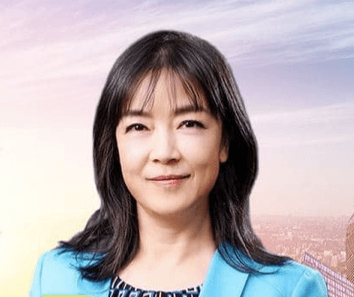
Since then, the page has been filled with vulgar videos posted by the mysterious hijacker, which Zeng, who no longer has administrative control, has no way to delete.
“[The videos] seriously damaged my reputation,” Zeng told The Epoch Times. “Some people accused me under the posts for posting these bad things. The words are very unpleasant to the ear. I can’t explain one by one, and I have issued statements many times.”
Zeng is baffled at why Facebook has been silent in response to her requests for help, given it would be very easy to verify her original ownership.
“This is something they can easily solve. Just by one glance, you can know that this page is mine, [since] I’ve been managing it all along … Even if it was someone else who stole the account, they could easily verify the matter and solve it for me,” Zeng said.
The author later met another Facebook staff member through LinkedIn, and when Zeng asked him whether he could help her get her page back, the individual told her it would be difficult as Facebook allegedly has an internal instruction to suppress Falun Dafa.
When Zeng asked why Facebook was censoring Falun Dafa, the man replied: “Because it’s the Internet age now. Many people report Falun Gong, and we can only follow the measures.”
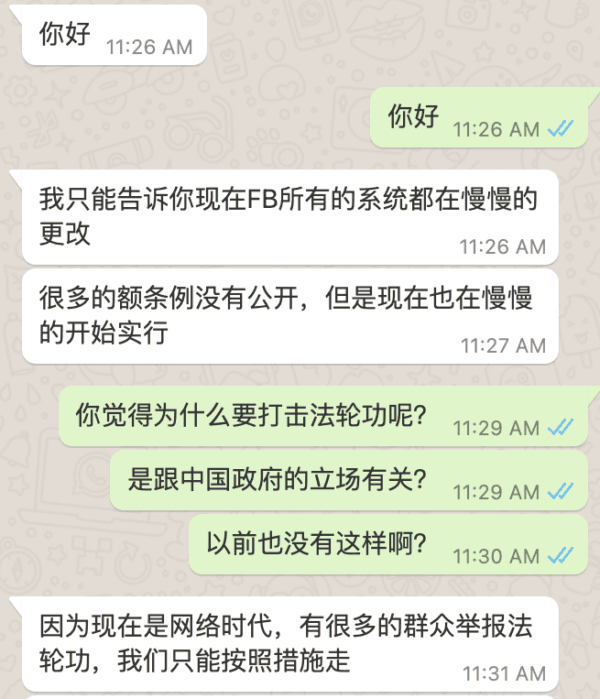
The New York Times alleged that the tool was designed as an option for governments who sought control over the platform and that it was part of a suite of mechanisms Facebook was going to offer as part of a push to access the Chinese market.
While Facebook has never confirmed the New York Times’s allegations, the CEO of a New York-based political risk consultancy, Don Tse, believes there may be some credence to the report.
SinoInsider focuses on the analysis of China-related political trends, with strength in predicting CCP elite politics and Sino-U.S. relations, according to the company’s website.
Further, he has also found that he cannot advertise on Twitter and while advertisements on YouTube are still working, the channel has faced abnormalities since mid-2020, including a drop in the number of subscribers and a stop of notifications for subscribers.
Big Tech Responds
A representative of Meta/Facebook told The Epoch Times that the company had no policy to prohibit people from sharing content related to the persecution of Falun Gong/Falun Dafa, Tibetans, Uyghurs, or Christians in China and that any allegations to the contrary were resoundingly untrue.“We believe freedom of expression is a fundamental human right, and we support the right of people to express peaceful political speech on our platforms. We do not arbitrarily remove political speech unless it violates one of our other Community Standards such as those related to hate speech, bullying and harassment, or violent and graphic content,” the Meta spokesperson said.
Further, the spokesperson explained that they deem their platform to be a critically important space for people to exercise their fundamental human rights and that any allegations that they prevent people from posting on Facebook about these issues are untrue.
Undoubtedly, Facebook has made some initial inroads into addressing human rights on its platform after appointing Miranda Sissons as Meta’s Director of Human Rights in 2019.
“Freedom of expression is a foundational human right and enables many other rights. But we know that technologies for free expression, information and opinion can also be abused to spread hate and misinformation,” the statement said.
“Since 2018, we’ve had dedicated teams spanning product, engineering, policy, research, and operations to better understand and address the way social media is used in countries experiencing conflict. Many of these individuals have experience working on conflict, human rights and humanitarian issues, as well as addressing areas like misinformation, hate speech, and polarisation.”
Meanwhile, after two years of failed attempts to get her page back on her own, following enquiries by The Epoch Times, Meta helped Zeng regain control of her Facebook page.
Meta was also able to resolve Tian’s on March 3, after The Epoch Times reached out to check on the issue.
Tian was informed by Instagram, in a communication seen by The Epoch Times, that her account’s deactivation was a mistake.
The resolution seems to have been erratic though, as the account was temporarily blocked again on March 5 before being restored again by Meta after several hours.
Tian said she hopes that her online business pages were not targeted or censored because her right to freedom of speech and freedom of belief is why she and many of her friends fled China’s communist regime.
“Numerous people died in China because of their beliefs and did not even have a voice for their experiences, and countless survivors live with mental and physical scars that may never be healed,” she said.
“[The loss] of some social media accounts seems to be a much less cost for a voice for those innocent lives that have been and will be persecuted.”
Tian said she also won’t change her sources for her designs’ inspiration.
“In a sense, human art and civilization are a gift from the divine. If the search for divinity in artistic creation becomes ‘shameful,’ this is a disgrace to humanity. If spirituality in a group becomes a ‘community taboo,’ it is a community’s sorrow.
“I feel that if I compromise, what I will lose is the source and foundation of my creative inspiration, which is much greater than losing a brand account or even losing a brand,” she said.




